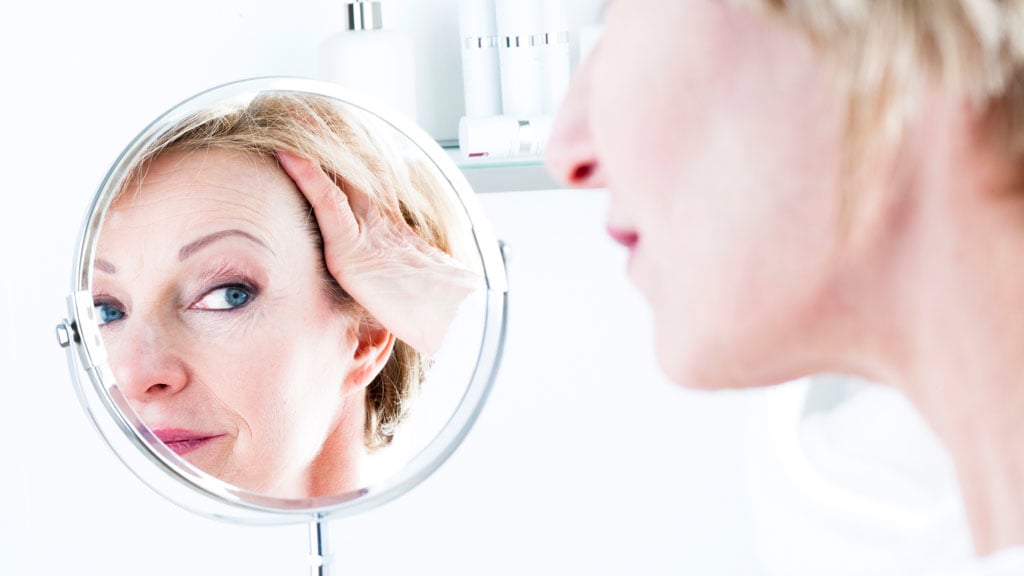I was inspired by a friend recently to write this blog. While we were celebrating her 45th birthday, she pulled me aside from the party to ask my why her skin seemed to be going “crazy” with dryness, acne, and wrinkles simultaneously. At 47 myself, I feel her pain. And I can attest that many of the women I see in the office everyday have the same issues.
During our 40s, the body is undergoing profound changes, and the skin is no exception. It is a time where dryness is frequently seen alongside acne on the chin. How unfair is that? Also, the signs of aging including fine lines and wrinkles, discoloration and laxity are emerging. Fortunately, there are many ways to address these changes to maintain your best complexion possible.
Dry Skin
Hormone levels start to drop long before entering menopause. During peri-menopause, as estrogen levels fall, many women first notice their skin is much drier than before. This is a common finding, but if not addressed, can lead to premature fine wrinkling around the eyes and mouth. A good way to add hydration to the skin without excessive greasiness is to use a moisturizer with hyaluronic acid, which has the consistency a gel. Hyaluronic acid helps to maintain skin moisture levels as it actively attracts water.
Dull Skin
Skin cell turnover slows down with age leading to a dull, lackluster complexion. Using glycolic acid containing products can help remove some of the dead skin layer to reveal a healthy glow. Depending on individual skin sensitivity, you can add glycolic acids to a skin regimen through a cleanser, toner, weekly pads or a nightly moisturizer.
Acne
Unfortunately, acne around the mouth and jawline is quite common in our 40s and is almost always due to fluctuating hormone levels. Topical spot treatment with salicylic acid or a sulfur-containing lotion can be helpful to dry up the occasional zit. However, if there are many cysts and the skin is otherwise quite dry, a visit to the dermatologist to obtain oral medication may be needed. Options include low-dose antibiotics or a medication that works to block the effect of hormones on the skin.
Wrinkles
If they haven’t already seen it, women will likely see their first wrinkle in their 40s. Genetics, sun habits, overall body health and skin care routines all contribute to how the skin ages. During this decade, I advise patients to pay attention to their changing skin because when it comes to aging, an ounce of prevention is worth a pound of cure. The daily use of a product with sunscreen has been clinically proven to help people maintain more youthful looking skin than if they were not using something with a sunscreen every day. Prescription retinoid creams can stimulate collagen to slow the signs of aging, however, people with sensitive skin can use over the counter retinol as a less intense alternative. For evolving wrinkles around the eyes and forehead, botulinum toxin (Botox, Xeomin or Dysport) can be used in small doses to help prevent wrinkles from getting worse while maintaining a natural look. For fine lines, discoloration, and enlarging pores that often begin in our 40’s, chemical peels, collagen-stimulating fractionated laser, and broad-band light treatments can be performed to delay the changes associated with aging skin. Although it is not possible to stop the signs of aging altogether, it is possible to slow photoaging down significantly when good skin care habits are combined with skin treatments performed on a regular basis.
Dr. Elizabeth Tanzi is Founder and Director of Capital Laser & Skin Care and Clinical Professor of Dermatology at the George Washington Medical Center.




















